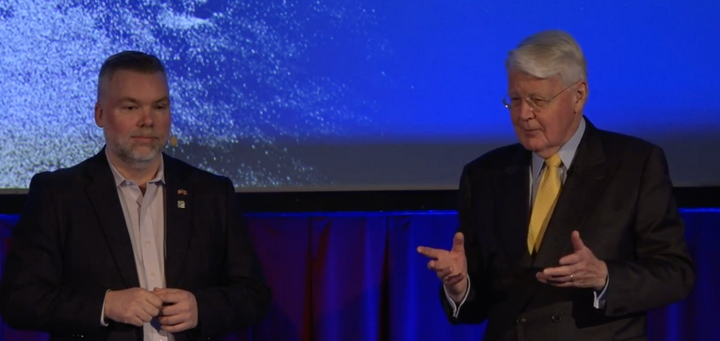Just One Click: Car Parts, Instantaneous Orders and a Late-night Email to Jeff Bezos
The company started with a basic idea: help businesses streamline and automate their sales processes. The usual administrative headaches ensued. Late one evening, in a fit of bleary desperation, a cofounder concocted an email to Jeff Bezos, Amazon’s CEO and the world’s richest man. And that’s when things started taking off for Clicksale, a small IoT startup based on the outskirts of Reykjavík.
Bjarni Ingimar Júlíusson, Clicksale’s CEO, has long been involved in information technology. His family owns Stilling, a company that has sold spare automotive parts in Iceland for almost 60 years, and Bjarni worked on a first-of-its-kind platform whereby vehicle owners could find all the parts they needed simply by entering their license plate number online.
But Bjarni soon encountered a problem: placing orders for products was far from efficient. Automobile shops often had a glut of general car-related materials but were often lacking in specific car parts. Furthermore, too much time was spent on ordering parts and waiting several days for them to arrive.
Why not allow mechanics to order parts immediately and have them delivered within the hour? Bjarni wondered.
So, in 2017, he formed Clicksale with Árni Jónsson, the first developer at Plain Vanilla Games, makers of the wildly successful trivia game QuizUp. The company ordered several Amazon Dash Buttons, which are physical pads a client can press to order prespecified products instantaneously over WiFi.
“We essentially hijacked the delivery system,” says Bjarni.
Clicksale wasn’t just buying up a bunch of buttons and redistributing them, however. The startup wanted to plug the gaps in Amazon’s system.
“What Amazon does is actually quite limited: they have this physical button that connects to the internet,” says Bjarni. “The purchaser have to do a lot of heavy lifting: connect it, program it, use the Amazon cloud. We created a cloud service for companies to implement this easily and also developed an app to deploy this service within a few seconds.”
Why not make the Internet of Things more accessible and intuitive? The only trouble was, ordering Dash buttons in bulk wound up being more cumbersome than the cofounders had anticipated.
“It’s almost like they don’t want you to order it,” says Bjarni. “We were getting really frustrated.”
It was only then that he considered writing to the founder of the world’s largest online marketplace and a man whose net worth was recently pegged by Forbes at nearly $140 billion: Jeff Bezos himself.
“It was kind of a moonshot idea,” Bjarni admits.
He fired off the email right before he went to sleep, and by the next morning he already had a reply from one of the corporation’s vice presidents. That executive invited the Clicksale cofounders to re:Invent, a massive annual developers’ conference sponsored by Amazon, where the Icelanders met the Dash Button team and ultimately resolved their ordering issue.
One question remained: did Jeff Bezos actually see Bjarni’s email?
The answer was unclear. Amazon staff simply said his email had had been forwarded to the director of their department.
“I don‘t know if Jeff Bezos personally forwarded the email or his team did, but it really paid off,” says Bjarni.
Today, Clicksale is focusing on expanding beyond the automotive sector and developing a platform for the optimization of all kinds of product sales. “We’re not a company that replaces your whole IT system,” says Bjarni. “We have small solutions you can hook into your existing infrastructure.”
By focusing solely on software and programming development, Clicksale hopes to respond nimbly to marketplace changes and hone its swift online ordering model. The startup is also partnering with Sigma, a Swedish technology company, to develop their own physical ordering device that would be more tailored to Clicksale’s needs than the Amazon Dash Button.
In the end, Clicksale’s vision is one that could restructure businesses’ purchases and free up a lot of time and creative energy as well.
“We think these repetitive processes—which currently tie down the market—can be automated,” says Bjarni.




